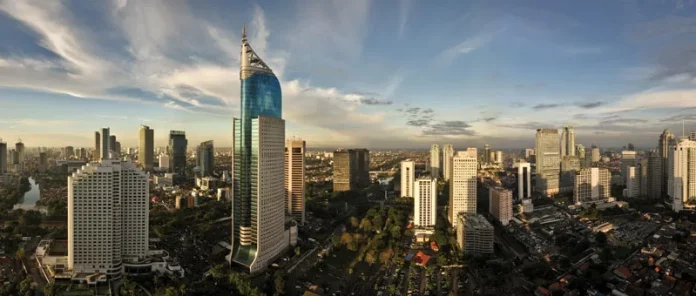Indonesia’s economic growth accelerated in the April-June quarter amid an export boom driven by rising commodity prices, official data showed on Friday, but monetary tightening, rising inflation and a global recession risk threaten the outlook.
Second-quarter gross domestic product (GDP) was up 5.44 per cent from a year earlier, showing the fastest growth rate in a year, according to Statistics Indonesia data. That beat the median forecast for a 5.17 per cent rise in a Reuters poll and the first quarter’s 5.01 per cent annual growth.
Exports expanded nearly 20 per cent from a year before, a performance that the statistics bureau called “impressive”. This compared with the 16.22 per cent annual growth seen in the previous quarter.
Reuters cited household consumption, which accounts for more than half of GDP, recovered further after the lifting of Covid-19 restrictions, with the Eid al-Fitr celebration in May providing a further boost. However, investment slowed.
By sector, food and beverages, mining, construction and transport and warehousing saw faster expansion than in the previous period.
It is “strong growth but it won’t last as headwinds mount,” Gareth Leather, an analyst with Capital Economics, said in a note, predicting exports would be affected by declining commodity prices and a global growth slowdown.
Prices of palm oil, one of the country’s top export products, have plunged in recent months, but Indonesian coal prices are still hovering around record highs due to strong demand from such markets as Europe.
Already, Indonesia’s central bank said last month the rise in full-year 2022 GDP from 2021 would be at the lower end of the range of 4.5 per cent to 5.3 per cent. It previously forecasts growth in the middle of that range.
In lowering its forecast, the central bank said a global slowdown would dent exports and a rise in inflation at home would slow recovery in consumption.
Consumer prices in July were up 4.94 per cent from a year earlier, marking a seven-year high in inflation and prompting calls by economists for Bank Indonesia to lift interest rates from pandemic-era lows.
While the latest GDP data showed “the relatively insular nature of Indonesia’s economy” at a time when recession fears dominate headlines, the fact that the economy was doing well should push Bank Indonesia to hike interest rates, said Wellian Wiranto, an economist with OCBC. OCBC expects the central bank to raise the interest rates at this month’s policy review.









